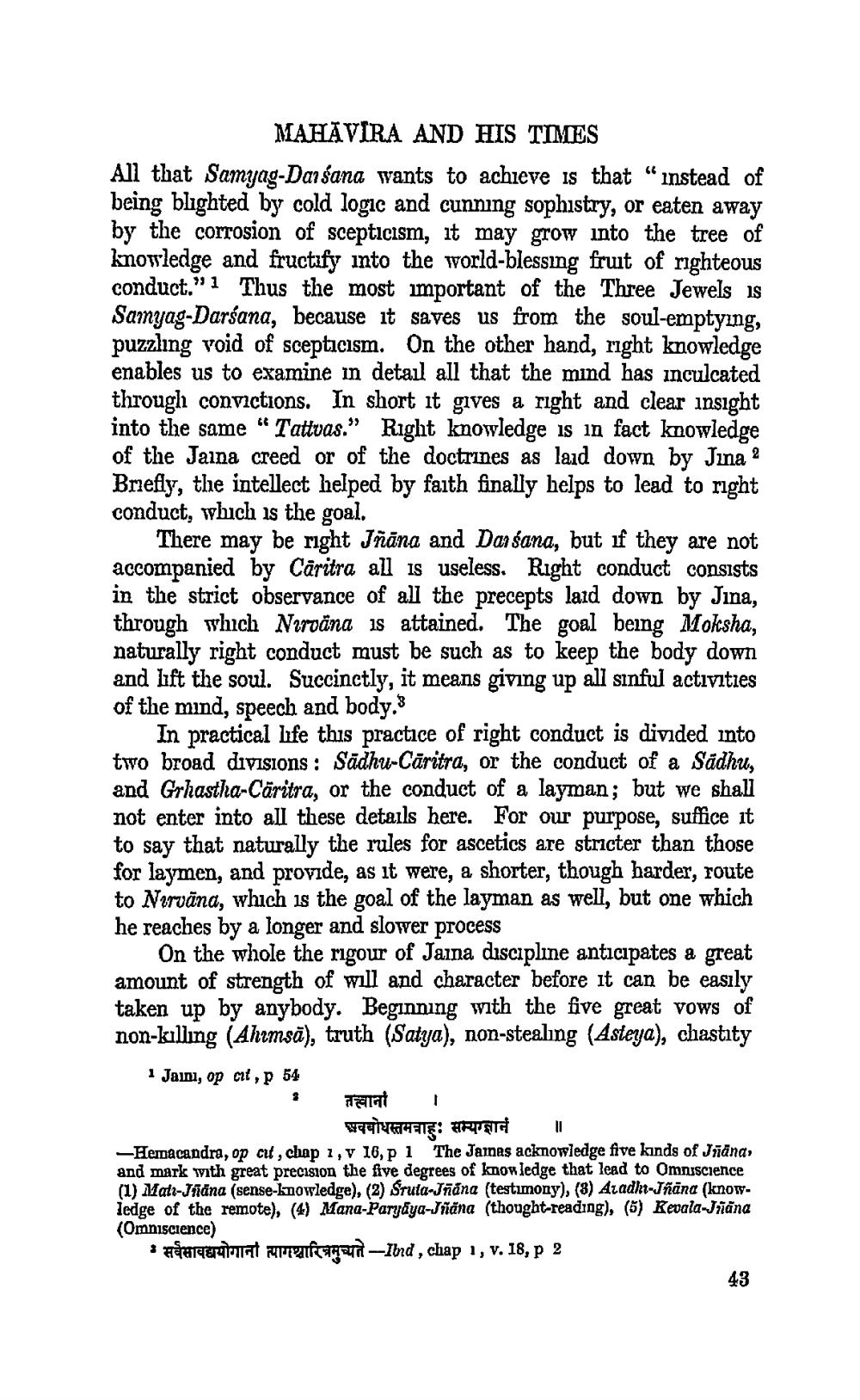________________ MAHAVIRA AND HIS TIMES All that Samyag-Darsana wants to achieve is that "instead of being blighted by cold logic and cunning sophistry, or eaten away by the corrosion of scepticism, it may grow into the tree of knowledge and fructify into the world-blessing fruit of righteous conduct." 1 Thus the most important of the Three Jewels is Samyag-Darsana, because it saves us from the soul-emptying, puzzling void of scepticism. On the other hand, right knowledge enables us to examine in detail all that the mind has inculcated through convictions. In short it gives a right and clear insight into the same "Tattvas." Right knowledge is in fact knowledge of the Jaina creed or of the doctrines as laid down by Jina 2 Briefly, the intellect helped by faith finally helps to lead to right conduct, which is the goal. There may be right Jnana and Darsana, but if they are not accompanied by Caritra all is useless. Right conduct consists in the strict observance of all the precepts laid down by Jina, through which Nirvana is attained. The goal being Moksha, naturally right conduct must be such as to keep the body down and lift the soul. Succinctly, it means giving up all sinful activities of the mind, speech and body. 3 In practical life this practice of right conduct is divided into two broad divisions : Sadhu-Caritra, or the conduct of a Sadhu, and Grhastha-Caritra, or the conduct of a layman; but we shall not enter into all these details here. For our purpose, suffice it to say that naturally the rules for ascetics are stricter than those for laymen, and provide, as it were, a shorter, though harder, route to Nirvana, which is the goal of the layman as well, but one which he reaches by a longer and slower process On the whole the rigour of Jaina discipline anticipates a great amount of strength of will and character before it can be easily taken up by anybody. Beginning with the five great vows of non-killing (Ahimsa), truth (Satya), non-stealing (Asteya), chastity 1 Jaini, op at, p 54 PATI I सवोधस्तमबाहुः सम्यग्ज्ञानं // -Hanacandra, op cut, chap 1, v 16, p 1 The James acknowledge five kinds of Irana, and mark with great precision the five degrees of knowledge that lead to Omniscience (1) Malt-Jndna (sense-knowledge), (2) Sruta-Jhana (testimony), (8) Aradhana (knowledge of the remote), (4) Mana-Paryaya-Jnana (thought-reading), (6) Kevala-Jijana (Omniscience) Sara APV -Ibnd, chap 1, v. 18, p 2




